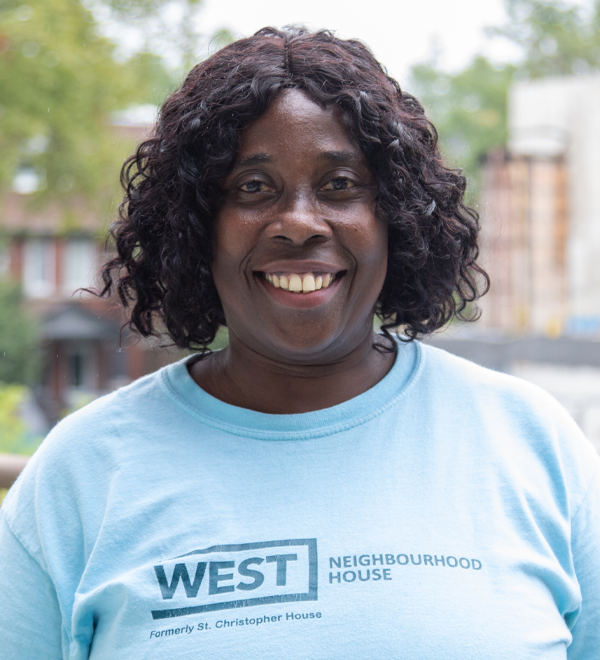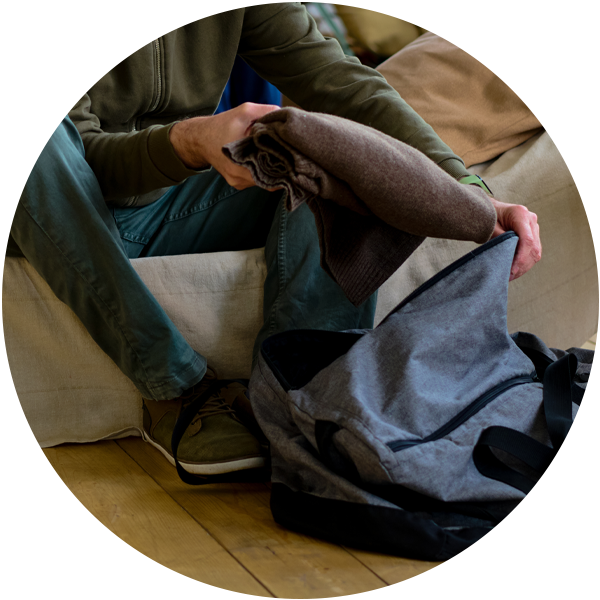Everyone deserves a roof over their head. Safe and affordable housing should be a right — not a privilege. So we’re rolling up our sleeves, digging into the work to prevent and reduce the risks of homelessness and ensure that individuals and families can access affordable housing and a place to call home. Any way we can.
THE CHALLENGE
The cost of rent in the GTA is skyrocketing. For too many, the increasing costs of living are forcing people into precarious situations. Safe and affordable housing is about so much more than just having a place to live. Housing insecurity negatively impacts physical and mental health and more. It can affect anyone, but people who are Indigenous, racialized and 2SLGBTQ+ are more likely to experiencing homelessness, and seniors, youth, women, families and newcomers/refugees are increasingly making up a larger share of the population affected. That’s why we won’t sleep until everyone has their own bed. We will continue, determined to build communities where everyone has a safe, stable place to call home.

16%
of GTA households live in unsuitable/unaffordable housing and can’t afford to move in 2024

866 people
IN PEEL REGION WERE FOUND TO BE EXPERIENCING HOMELESSNESS IN ONE NIGHT, REPORTED IN THE 2021 ICOUNT, AN INCREASE of 48% OVER THE PREVIOUS 2018 ICOUNT

14 years
is the average wait for a subsidized one-bedroom home in Toronto
THE ONLY BARRIERS WE SUPPORT HAVE FOUR WALLS AND A ROOF
We fund 92 programs that provide services including housing support, homelessness prevention programs, host programs for refugees and more. Together with our network of agencies, we’re meeting urgent needs on the ground — and we’re also chipping away at the barriers that stand in the way of housing security by investing in vital research and advocating for policy changes to create long-term, lasting change. We’re bringing people together like no one else can — residents, nonprofits, government and businesses — to address the issue with innovative solutions, like the Social Medicine Initiative (SMI) in Parkdale. Along with providing affordable housing for people with health conditions, SMI is providing wraparound supports — because we know that to address housing and homelessness, we also have to address it’s complex, interconnected challenges like food, mental health and well-being and employment.


Beryl-Ann, Community Development Peer Worker at West Neighbourhood HouseSome people are living on peoples’ couches. You’re seeing multiple families staying in two- or three-bedroom apartments. If you’re on Ontario Works or ODSP, or even if you’re making minimum wage, the money is just not enough to cover the rent.
(a United Way-supported agency)
BUILDING A GTA FOR ALL
Building community takes community. Together, we have helped:

30,883
individuals who are unhoused or are at risk of homelessness receive housing supports

17,316
individuals at risk of homelessness receive basic supports (e.g., basic health, personal supplies, meals)
Every person living in the GTA needs a safe, stable place to live with no exceptions. It’s our duty to tackle homelessness and make sure everyone has a home they can call their own. Any way we can.
Learn more
April 30, 2025
Helping a father find housing and a healthy future
After receiving a cancer diagnosis, Boafo grappled with the news alone. Then, he found a United Way-supported agency that connected him to community, housing and the wraparound services he needed to thrive.
December 17, 2023
4 places to donate winter coats in the GTA
These organizations are making sure people who can’t afford cold-weather gear stay warm this winter
December 11, 2023
Providing stable housing for youth to grow
Serpil was 15 years old and about to enter the shelter system. Then she found a United Way-funded agency that gave her the stability and security she needed to thrive